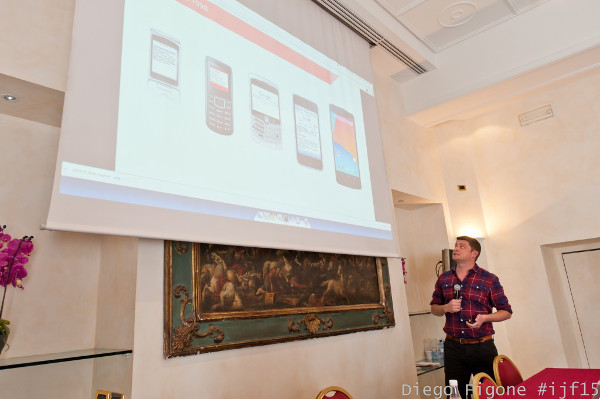Matt Cooke, representative of Google News Lab, opened the series of Google workshops at the International Journalism Festival in Perugia. The speaker introduced advanced Google search tools and databases useful for journalists and media companies.
Do you know how to use Google? This question might seem even offensive. “Yes, of course, I can google, thank you very much!”, you would say. Yet, Matt Cooke from Google’s News Lab in London admitted he still has a lot to learn about comprehensive tool box offered by the company. During the workshop at IX International Journalism Festival in Perugia, Cooke recalled that he did not know about many useful Google tools when he himself was working as a journalist. He encouraged the audience not to follow this path and gave various tips on professional use of Google search for journalists and media companies.

Matt Cooke’s general advice was to pay more attention to the options offered for advanced search such as filters by geography, date, or content license. These “hidden” little options can help journalists save time on data searching and verification. There is no longer a need to check the source of the image with Tineye or look for a free license content on Flickr. Google has aggregated all these useful services of the specialized search engines offering the one-for-all solution.
Along with the advanced searching, Google offers to journalists global online databases, such as Public Data and Google Trends. The statistics collected from the major ten public institutions in the US and EU are available at Google Public Data in forms of row data, graphic charts, or interactive widgets. Google Trends service covers the data on recent searches as well as the yearly archive of the user’s requests by geography and other parameters.
This impressive presentation leads to the suggestion that a global data journalism could be driven solely by Google’s tools and databases. But can the search requests on politicians be a representative reflection of the public opinion? Are “global trends” truly global if there are still regions only partially covered by Google services (such as China and Russia)? The questions like these were raised by international journalists during the Q&A session after the workshop. The speaker agreed that the advanced tools are useful in experienced hands and designed mainly to help journalist with casual data operations.
Matt Cooke will continue to share his knowledge with the journalistic community during the following days, with workshops on Youtube (Thursday, 9.30 at Sala Perugino) and Google Maps (Friday, 10.00 in Palazzo Sorbello).